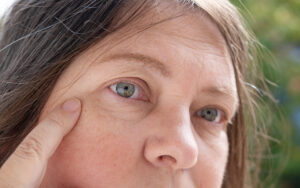A cataract is the clouding of the normally clear lens of the eye. This leads to a decrease in the amount of light that can reach your retina, which, in turn, significantly decreases your vision. A cataract is the chief cause of blindness, especially among older adults.
If your vision is getting blurry and you are an older adult, chances are very high that you have cataracts. It develops slowly and you may not notice the symptoms. This eye condition can be treated by eye experts through surgery or prescription. Without treatment, cataracts result in complete blindness.
What causes cataracts?
Your eye lens is responsible for focusing light on your retina for you to have a clear vision. It also adjusts the eye focusing so that you can see either far or close objects. Since this lens is made of proteins and water, it causes clouding in your lens when the proteins change.
This clouding gets worse with aging and makes it hard for you to see. When the cataract grows bigger and covers the entire lens, it leads to complete blindness. Age-related changes in proteins are not the only risk factor for cataract development. The list includes:
- Exposure to Ultraviolet light
- Use of medication containing a high dose of corticosteroid
- Health conditions like diabetes and hypertension
- Other eye conditions like myopia and uveitis
- Eye inflammation
- Family history of cataracts
- Lifestyle habits like smoking and alcohol consumption
- A noticeable clouding in the eye
Types of cataracts
Cataracts are categorized depending on the part of the lens they affect in your eyes. The size of the clouding in your lens also determines how much your vision will be impaired. It can affect the center or the edges of your lens and the severity of the effect will differ among these locations. Having mentioned these, let us have a look at the types of cataracts. Shall we?
Nuclear cataracts
These are a type of cataract that affects the center of your lens. A nuclear cataract is characterized by nearsightedness, which means your ability to see far objects will be impaired. As time advances, the lens becomes more clouded, further damaging your vision. The clouding also normally starts by turning yellow and may eventually turn brown, which causes color blindness.
Congenital cataracts
These are types of cataracts that a patient is born with. They are mostly caused by complications during pregnancy, infection, and genetic issues. Additionally, some patients develop these cataracts during childhood from infection, inflammation, injuries, or even trauma.
Cortical cataracts
These are the type of cataracts that form at the edge of the eye lens. It normally starts developing as streaks at the edge of the cortex and they are normally white in color. With time, these streaks grow towards the center of your lens. It is hard to notice these types of cataracts since they do not cause serious vision impairment at first. However, when it has grown, it causes serious vision problems.
Posterior subcapsular cataracts
These cataracts are the most severe since they grow faster and affect your vision to a greater extent. It starts at the back of the lens and since it interferes with the light passage, it impairs your vision in bright light.
What are the Signs and Symptoms of Cataracts?
Cataracts are hard to notice during the onset. You will tend to find out you have cataracts as they progress or when your vision has been seriously impaired. Therefore, you should watch out for the symptoms, which include:
- Blurry and cloudy vision
- Double vision, glare, and halos at night or in bright light
- Changes in your color vision
- Your contact lenses and other prescriptions are not working well or failing to work completely
- Improved Nearsightedness and blurry distant vision
Treatment of Cataracts
Before you are subjected to any cataract treatment, your eyes will be assessed and examined. It is important to notice that in most cases cataracts are very visible so diagnosing will be obvious. However, if it is not visible, your eye specialist will do a detailed examination to determine the location, size, and extent of the cataracts. Once all these are established, your specialist will then recommend treatment.
If the impairment has not greatly progressed, the doctor will put you under the prescription of glasses or contacts to correct the condition. However, if the cataracts have grown and they severely interfere with your vision, cataract surgery will be recommended.
Cataract surgery is very effective and 99% of patients report that their vision is improved after undergoing surgery. The surgery involves the removal of the damaged eye lens and performing a replacement with aplastic one. The surgery does not take long and you will be able to go home the same day.




